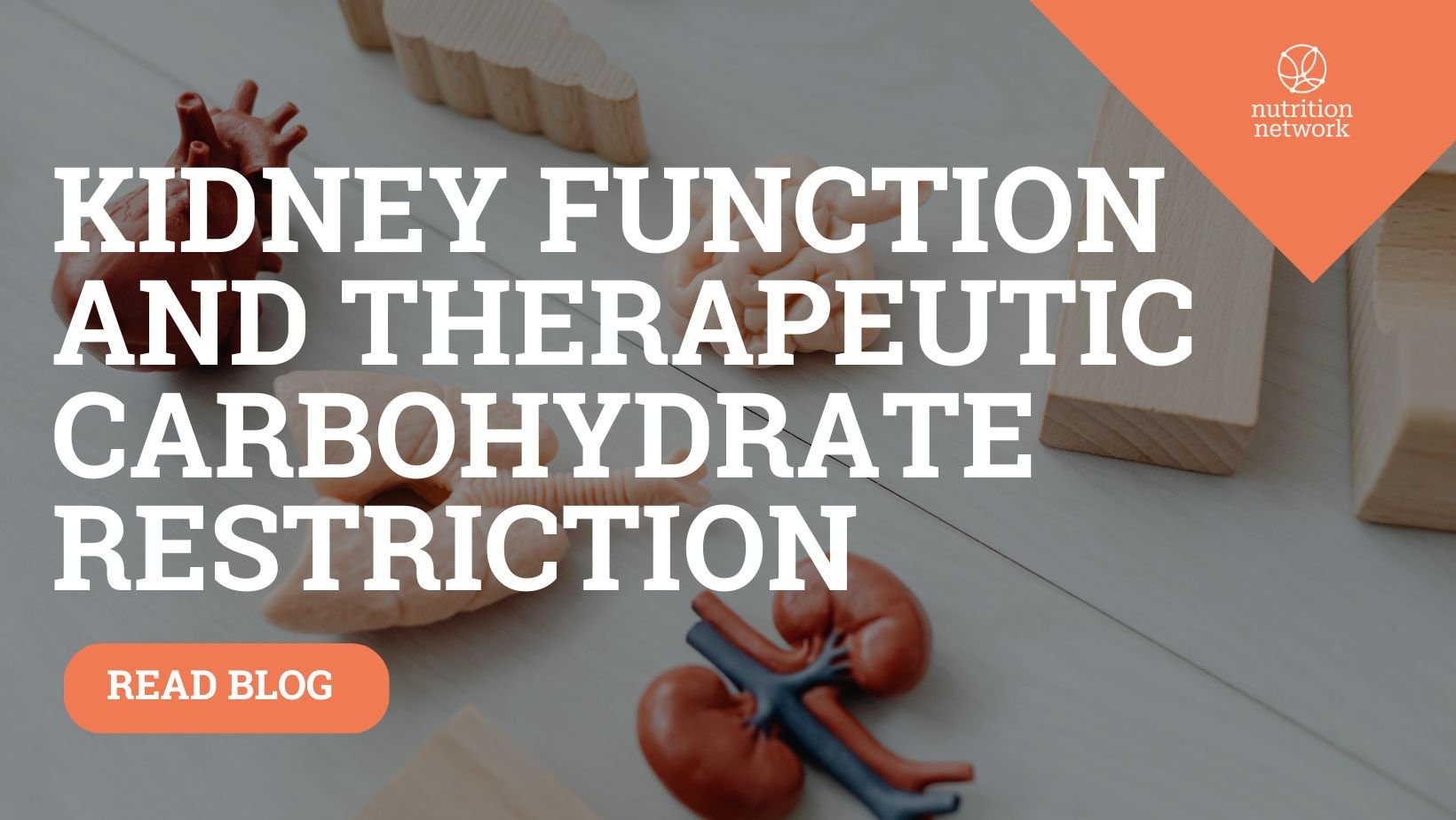Sarah Rice BSc. (Hons), MCOptom (UK), MHP, NNP
Introduction
Cardiovascular, kidney, and metabolic (CKM) diseases share a common pathophysiology such that terminology has been developed to reflect the common disease pathways (1). A recent study analysing sample population data indicates that nearly 90% of US adults may qualify for CKM syndrome, defined as having at least stage 1, which denotes a CKM risk factor of excess or dysfunctional adiposity (1).
Metabolic health is implicated in kidney function through the association of obesity and type 2 diabetes with chronic kidney disease (CKD). Obesity plays a direct role in the development of CKD via increased inflammation due to proinflammatory adipocytokine production associated with visceral adiposity. Insulin resistance is also implicated via comorbidities such as type 2 diabetes and hypertension. These factors underpin the CKM syndrome and insulin resistance, as implicated in vascular pathology, and play a key role in affecting kidney function due to its status as an end organ (2). End organs typically reflect chronic disease states and are impacted by vascular and neurological damage often occurring in diabetes. Eyes and kidneys are examples of end organs. Diabetic kidney disease is a subset of CKD thought to occur in around 40% of individuals with type 2 diabetes. A decline in kidney function, as reflected in decreasing estimated glomerular filtration rate (eGFR) is associated with worse outcomes, and this metric has been validated as a surrogate endpoint for kidney failure (3).
Therapeutic carbohydrate restriction
Therapeutic carbohydrate restriction (TCR) reliably improves obesity, metabolic syndrome, insulin resistance, and type 2 diabetes, which are key drivers of CKD (4). Historically, in the context of CKD, protein levels in the diet have been subject to controversy due to associations with increased acid excretion, hyperfiltration, and potentially negative effects on kidney function (5). However, a review from Athinarayanan et al. (2024) examined low-carbohydrate studies and found that protein intakes in the range of 0.6 g/kg to 1.4 g/kg were typical and below the threshold for concern (set at ≥2.0 g/kg); in fact, this range is similar to that reported for the Standard American Diet (5).
TCR, which may include a state of nutritional ketosis, promotes metabolic changes beneficial in CKD that include general improvements in metabolic pathways via reduced insulin resistance as well as reduced inflammation, antioxidative effects, improved cellular energetics (via ketone bodies), antifibrotic effect, and improved mitochondrial function (5)
Recent studies on TCR for CKD
A recent study from Athinarayanan et al. (2025) undertook a post-hoc analysis comparing a continuous care intervention (CCI) using a low-carbohydrate (ketogenic) diet with usual care (UC) to assess the relationship between blood β-hydroxybutyrate (BHB) levels and the slope of estimated glomerular filtration rate (eGFR) (3). This study was inspired by findings that the positive effects of SGLT2 inhibitors on kidney disease might be linked to a mild state of ketosis caused by these medications. The secondary analysis of the CCI data examined whether nutritional ketosis might offer similar benefits. They found CCI participants had a significant increase in eGFR slope versus a decline in the UC group. Higher BHB levels were independently associated with greater eGFR improvement. A dose-response relationship was observed, particularly in those who had a lower eGFR at baseline. Inflammatory markers also decreased significantly in the CCI group, where higher levels of dietary adherence (ketosis) produced a greater reduction. There were no significant changes in blood urea nitrogen (3).
Another study examined retrospective data from a group of patients with metabolic syndrome and a diagnosis of CKD stages 3 and 4 (2). They were given low-carbohydrate dietary advice (≤ 30 g/day), which they followed for at least 3 months. They found TCR was safe and effective, reducing BMI, HbA1c, and BP along with a reduction in medication use. No patients experienced worsening of eGFR, and 15/18 patients experienced an increased eGFR (2).
Autosomal-Dominant Polycystic Kidney Disease
Recent studies have suggested abnormal energy metabolism as a key feature of autosomal-dominant polycystic kidney disease (ADPKD), with emerging evidence indicating nutritional ketosis could play a role in slowing disease progression (6). Early studies suggest higher ketone levels may confer more benefit, though more studies are needed to confirm these findings (7, 8). Irrespective of these data, improving metabolic health in this population yields benefits in weight loss and blood pressure, which are suggested as supportive measures for ADPKD (6).
Conclusion
Nutritional ketosis via TCR may be a non-pharmacological strategy to improve or stabilise kidney function and reduce inflammation in adults with obesity, insulin resistance, or type 2 diabetes. Early studies show promise for ADPKD. Taken together, these findings support further randomised controlled trials to validate the approach and explore if the synergistic effects of TCR and pharmacotherapies have a role in optimising disease outcomes.
References
1. Aggarwal, R., Ostrominski, J.W. and Vaduganathan, M. (2024) ‘Prevalence of Cardiovascular-Kidney-Metabolic Syndrome Stages in US Adults, 2011-2020’, JAMA [Preprint]. Available at: https://doi.org/10.1001/jama.2024.6892.
2. Colledge, B.S. et al. (2025) ‘Is the very low carbohydrate diet safe for individuals with chronic kidney disease?’, Journal of Metabolic Health, 8(1), p. 10. Available at: https://doi.org/10.4102/jmh.v8i1.115.
3. Athinarayanan, S.J. et al. (2025) ‘Effects of a continuous remote care intervention including nutritional ketosis on kidney function and inflammation in adults with type 2 diabetes: a post-hoc latent class trajectory analysis’, Frontiers in Nutrition, 12, p. 1609737. Available at: https://doi.org/10.3389/fnut.2025.1609737.
4. ‘Metabolic Disorders’ (2025) Nutrition Network. Available at: https://nutrition-network.org/research/metabolic-disorders/ (Accessed: 14 July 2025).
5. Athinarayanan, S.J. et al. (2024) ‘The case for a ketogenic diet in the management of kidney disease’, BMJ Open Diabetes Research and Care, 12(2), p. e004101. Available at: https://doi.org/10.1136/bmjdrc-2024-004101.
6. Li, J. et al. (2025) ‘Ketogenic diets and β-hydroxybutyrate in the prevention and treatment of diabetic kidney disease: current progress and future perspectives’, BMC Nephrology, 26(1), p. 127. Available at: https://doi.org/10.1186/s12882-025-04019-0.
7. Cukoski, S. et al. (2024) ‘#2160 Ketosis moderates the effect on kidney volume in dietary interventions for ADPKD—more insights on the KETO ADPKD trial’, Nephrology Dialysis Transplantation, 39(Supplement_1), pp. gfae069-0738–2160. Available at: https://doi.org/10.1093/ndt/gfae069.738.8. Knol, M.G.E. et al. (2023) ‘Higher beta-hydroxybutyrate ketone levels associated with a slower kidney function decline in ADPKD’, Nephrology Dialysis Transplantation, p. gfad239. Available at: https://doi.org/10.1093/ndt/gfad239.










